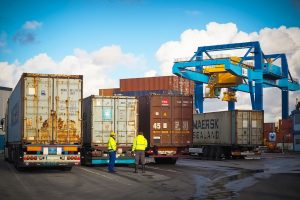Onome Amuge
More than a quarter of companies operating in key developed markets are considering halting production in direct response to US President Donald Trump’s tariffs, according to a recent survey by insurer Allianz Trade. The research indicated how escalating trade tensions are reshaping global supply chains and dampening export growth expectations.
The survey found that a 60 per cent of respondents anticipate a negative impact on their business from the ongoing trade disputes. Crucially, less than half of the surveyed companies now expect positive export growth over the next twelve months, a sharp decline from the 80 per cent that held this optimistic view prior to Trump’s initial tariff announcements. Four in ten exporters are bracing for a 2-10 per cent fall in turnover over the coming year.
Aylin Somersan Coqui, CEO of Allianz Trade, noted the shift in sentiment. “In sharp contrast to the optimism seen before the April 2 tariff wave, this year’s Global Survey confirms what we’re observing across markets: uncertainty and fragmentation are becoming structural,” she stated.
Coqui added that ‘Liberation Day’, referring to the trade disruption triggered by Trump’s tariffs, exposed the vulnerabilities of companies with highly concentrated supply chains and export markets.
The survey, which polled over 4,500 companies in China, France, Germany, Italy, Poland, Singapore, Spain, the UK, and the US across two waves in March and April 2025, reveals tangible plans for operational adjustments. Over a quarter of firms reported that they might temporarily halt production due to the tariffs. Furthermore, 32 per cent intend to cease imports or offshore production to circumvent delays or increased costs.
In the US, nearly nine out of ten firms indicated they had stockpiled imports in an attempt to pre-empt anticipated tariff hikes. While a recent pause announced by the US and China saw a temporary unwinding of the steepest tariffs as talks continue, Allianz Trade believes this temporary relief is unlikely to deter US firms from continuing to try and outrace future tariff increases.
The impact of tariffs is also expected to hit consumers. The survey found that 54 per cent of businesses in the US and 38 per cent globally plan to raise prices in response to tariff-induced costs. This trend is particularly pronounced in the energy, textiles, and wood products sectors, where over half of suppliers intend to increase prices. In contrast, only 22 per cent of surveyed companies are willing to absorb these rising costs.
To mitigate higher expenses, companies are actively exploring alternative strategies, primarily diversifying input sources or export destinations. Over a third of firms have already found new export markets, with almost two-thirds planning to do so.
The research also indicated a concerning trend of lengthening payment terms, with over half of surveyed exporters anticipating an increase in payment durations. 70 per cent of firms reported receiving payment between 30 and 70 days after shipment. This mirrors findings from a Coface survey in April, which indicated Chinese suppliers are being compelled to offer extended payment terms due to intense market competition.
Ana Boata, head of economic research at Allianz Trade, noted that larger companies are disproportionately affected by these delays. “Larger firms tend to experience longer payment delays,” she said, adding that “26% of surveyed companies having a turnover above €5bn facing payment terms exceeding 70 days, compared to 18% for the overall sample average.”
This suggests major companies are increasingly acting as “invisible banks” for smaller enterprises. As exporters face longer payment cycles and rising insolvency risks, they are under pressure to pass on costs, source from new markets, or even reconsider their entire international footprint.
The tariffs are undeniably reshaping global trade and investment flows. Despite the recent tariff reductions between the US and China, levies remain higher than before Trump’s second term. As a result, companies are actively seeking alternatives. Only one in ten US firms intend to export to East Asia after Liberation Day, down from 20 per cent. Similarly, Chinese companies’ desire to export to North America has plummeted from 15 per cent to 3 per cent.
“Europe and Latin America are emerging as attractive alternatives for Chinese firms, and European firms are also increasingly interested in exporting to China and Asia,” stated Françoise Huang, senior economist for Asia Pacific and trade at Allianz Trade.
Huang identified Latin America as the major winner of the trade war so far, with both Chinese and European firms exploring the region for lower-cost access to the US market. The survey observed a doubling of export intentions towards the South and Southeast Asian market to 14 per cent.










